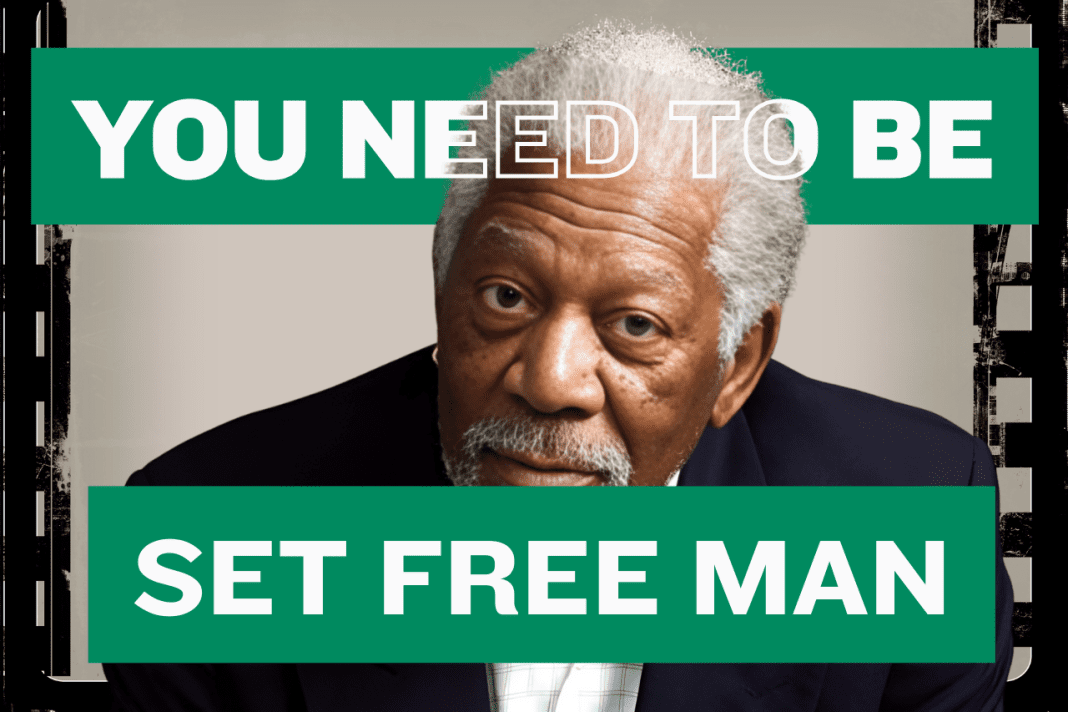Ah, Morgan Freeman. The man, the myth, the legend. The voice that could make a physics textbook sound like a bedtime story. But let’s get real for a moment—how did this guy become the untouchable deity of acting? It’s time to dissect and dismantle the myth of Morgan Freeman, one overrated performance at a time.
The Almighty Illusion
First, let’s talk about his portrayal of God in “Bruce Almighty” and “Evan Almighty.” Seriously, Hollywood? Just because the man has a voice that could calm a hurricane, we make him God? Twice? Imagine auditioning for the role of the Almighty and losing to Freeman because your voice didn’t sound like it was marinated in liquid gold for fifty years.
Driving Miss Daisy: The Cliché Chauffeur
“Driving Miss Daisy” is hailed as a classic, but let’s be honest. Freeman’s role as Hoke Colburn is nothing more than a walking stereotype. An African-American chauffeur for an elderly white woman in the South? Groundbreaking stuff, really. His performance is as predictable as the sunrise, yet we give him awards for it.
The Shawshank Redemption: Digging Holes and Narrating
“The Shawshank Redemption” is often cited as the pinnacle of Freeman’s career. But let’s break it down. Freeman plays Red, a guy who’s basically a human audiobook, narrating Andy Dufresne’s elaborate escape plan. Sure, he does it with that smooth, comforting voice, but isn’t it more about the narration than the acting? We applaud him for reading a script out loud while Tim Robbins does all the hard work of digging a tunnel.
Se7en: Sleepwalking Through Sin
In “Se7en,” Freeman plays Detective Somerset, a role that requires him to look perpetually tired and occasionally spout wisdom. He’s the archetypal weary detective, a role so overdone that even he seems bored. Meanwhile, Brad Pitt is running around yelling, “What’s in the box?” and stealing the show. Freeman’s performance is like the black coffee you drink to wake up—necessary but not exciting.
Invictus: Mandela on Autopilot
“Invictus” sees Freeman playing Nelson Mandela. Now, let’s not get carried away by the physical resemblance. Freeman’s Mandela is more a caricature than a character. He delivers his lines with the same measured tone he uses for everything, whether he’s talking about rugby or world peace. It’s like listening to your GPS guide you through a historical event—informative but lacking in genuine human warmth.
The Dark Knight Trilogy: The Lucius Fox Syndrome
In Christopher Nolan’s “Dark Knight” trilogy, Freeman plays Lucius Fox, Batman’s tech guru. While the movies are fantastic, let’s be honest. Freeman’s Fox is essentially Q from James Bond with gadgets and more platitudes. He’s there to explain the cool tech and occasionally offer moral support, all while Freeman’s doing his best “wise old mentor” routine. It’s a role that any half-decent actor with a calm demeanour could pull off.
The Sum Total: The Freeman Formula
So, what’s the secret sauce behind Morgan Freeman’s success? It combines a soothing voice, typecast roles, and a Hollywood that’s too enamoured with its own clichés. Freeman has perfected the art of playing Freeman in every movie—a wise, calming presence who narrates more than he acts. It’s like hiring a golden retriever to be a guide dog; sure, it’s reliable and friendly, but is it really doing anything special?
The Respectful Roast
Now, don’t get me wrong. This isn’t about hating Morgan Freeman. The man has had a storied career and undoubtedly brought joy to millions. But let’s not kid ourselves into thinking he’s the Shakespeare of our time. Freeman is a solid, dependable actor who’s ridden the wave of his iconic voice and typecast roles to stardom.
So, the next time you find yourself in awe of Freeman’s latest performance, ask yourself: Is it really his acting blowing you away, or are you hypnotized by that velvety voice telling you exactly what you want to hear? Remember, even legends need a little reality check now and then.
Read More: Adam Sandler is The One True King of Comedy






